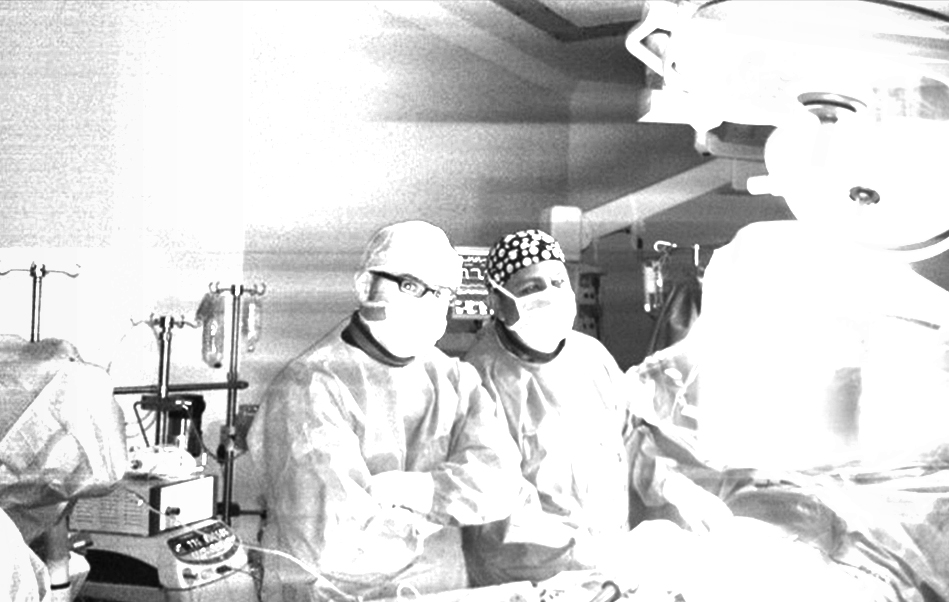Interventional cardiology refers to minimally invasive methods applied in the treatment of heart and vascular diseases without the need for open surgery. These procedures are mostly performed through peripheral vessels such as the groin (femoral artery) or wrist (radial artery), and the heart is accessed with special catheters. Thanks to these procedures guided by advanced imaging systems, many heart conditions can now be treated without surgery.
TAVI (Transcatheter Aortic Valve Implantation)
TAVI is an interventional method applied to patients with aortic valve stenosis, allowing the heart valve to be replaced without open surgery. It is an ideal option especially for patients of advanced age, with additional diseases, or high surgical risks.
TAVI Features:
- The procedure is performed through the groin area.
- A biological valve is placed inside the narrowed aortic valve.
- The procedure is generally performed under local anesthesia.
- Patients can be discharged within 2-3 days.
TAVI has become widespread in recent years as a strong alternative to open heart surgery and is routinely applied in many centers.
Interventions for the Mitral Valve
Transcatheter Mitral Valve Implantation
It is a very new method. It is the application of the TAVI method to the mitral valve. Similarly, a new valve is placed inside the mitral valve via a catheter through the groin, but through the vein.
Transcatheter Mitral Valve Repair (TEER)
It is the prevention of blood regurgitation from the left ventricle to the atrium by attaching both leaflets of the mitral valve to each other with a clip.
Balloon Angioplasty and Stent Application
Coronary artery blockages that cause heart attacks or chest pain can be easily treated with interventional methods.
Application Stages:
- First, a balloon catheter is placed in the narrowed or blocked vessel.
- The vessel is dilated by inflating the balloon.
- Then, a metallic cage called a stent is placed to keep the vessel open.
These procedures can usually be performed without requiring hospital admission. Thanks to modern stent technologies, the risk of re-occlusion of the vessel has also been significantly reduced.
Ablation Methods for Rhythm Disorders
Heart rhythm disorders (arrhythmias) can lead to serious consequences such as palpitations, fainting, or risk of stroke. Ablation, one of the interventional treatment methods, plays an important role in the permanent solution of these problems.
Ablation Process:
- The focus causing the rhythm disorder is detected with an electrophysiological study (EPS).
- The problematic focus is burned and neutralized with high-frequency energy (radiofrequency or cryo).
- If necessary, a permanent pacemaker or shock device (ICD) is implanted.
This method gives successful results especially in conditions such as atrial fibrillation, AVNRT, WPW syndrome.
Advantages of Interventional Cardiology
- Less invasive: No large incision is made, the procedure is performed through blood vessels.
- Shorter hospital stay: Many patients are discharged on the same day or within 1-2 days.
- Rapid recovery: The return to normal life is quicker.
- Fewer complications: Infection, bleeding, and pain rates are lower.
- Applicable to high-risk patients: Can be the first choice for elderly and inoperable patients.
Who is Suitable for Interventional Cardiology?
- Elderly individuals with high surgical risks
- Those with chronic diseases (COPD, kidney failure, etc.)
- Patients who do not want or are not suitable for surgery
- Individuals diagnosed with cardiovascular disease requiring intervention
The decision for each patient is made jointly by cardiology and cardiovascular surgery specialists.
Conclusion
Interventional cardiology, with the opportunities provided by technology, makes it possible to treat many heart and vascular diseases safely and effectively without the need for surgery. Methods such as TAVI, stent applications, and ablation both extend life expectancy and improve quality of life. It is of great importance for individuals experiencing symptoms related to heart health to get information about these methods and seek expert evaluation at an early stage.

